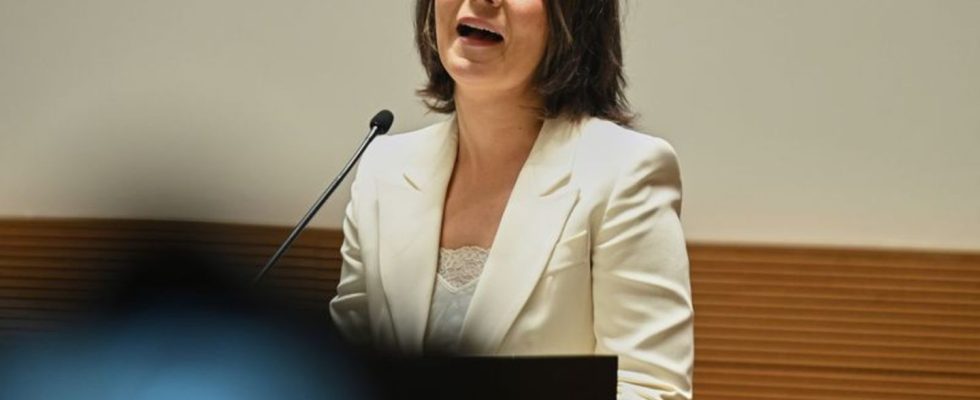diplomacy
Peace Process and Energy: Baerbock in Colombia
As part of her visit to Latin America, Federal Foreign Minister Annalena Baerbock (Greens) is traveling to Colombia today. photo
© Annette Riedl/dpa
Germany sees Colombia as an important partner on the South American continent. That is why they want to strengthen President Petro’s government. It is also about tangible self-interests.
Foreign Minister Annalena Baerbock continues her six-day trip to Latin America today in Colombia. In Cali, the country’s third largest city with 2.5 million inhabitants, the Greens politician wants to speak to Colombian Vice President Francia Márquez. In Baerbock’s talks, the focus is on the peace process in the country and the issues of climate, energy, raw materials and women’s rights.
Labor Minister Hubertus Heil (SPD), who had accompanied Baerbock on the trip to Brazil since Sunday, is now flying back to Germany from the Brazilian city of Belém.
Production, use and export of green hydrogen
The Colombian government of President Gustavo Petro wants to further expand renewable energies. For example, the federal government is working more closely with the state. Petro has been in office since August 2022. His election promises also included stopping new licenses for coal and oil production and offshore oil production. Colombia is also interested in the production, use and export of green hydrogen – there could also be cooperation here. Traditionally, Colombia is also considered a close partner of Germany when it comes to climate protection.
Colombia is the fourth largest country in South America and has around 50 million inhabitants. Márquez, 41, is the South American country’s first black female vice president. The human rights activist and environmentalist fought against illegal gold prospectors in the Cauca region, which was particularly affected by the violence, and was threatened several times. In 2018 she received the prestigious Goldman Prize for her commitment.
52 years of civil war and a peace process
For 52 years, Colombia suffered from a civil war between left-wing rebels, right-wing paramilitaries and the military. 220,000 people lost their lives and millions were displaced. The security situation has improved since the 2016 peace agreement between the government and the largest rebel group, FARC. However, parts of the country are still controlled by illegal groups.
Since reintegration into civilian life often failed, many former combatants have rejoined criminal gangs. In particular, violence against social activists, indigenous people and environmentalists has increased significantly. President Gustavo Petro now wants to achieve “total peace”. However, there are always setbacks because the armed groups do not comply with the ceasefire.
Third round of peace talks to come to an end
The third round of peace talks between the Colombian government and the left-wing guerrilla organization ELN in Havana was supposed to end today. President Petro wanted to travel to the Cuban capital for the conclusion. The negotiators were expected to announce a ceasefire.
After a four-year break, representatives of the government and the National Liberation Army (ELN) resumed peace negotiations at the end of 2022. The previous government of conservative President Iván Duque had broken off peace talks with the ELN in 2019 after the group’s bomb attack on a police academy in Bogotá that killed 22 people. Petro, an ex-guerrilla of the M-19 group, restarted the peace process after taking office in August 2022.
The Marxist-Leninist ELN has around 5,000 fighters. The organization was initially based heavily on the Cuban model of socialism, later many clergymen influenced by liberation theology joined the group. It carries out attacks and takes hostages, especially in eastern Colombia.
Panel discussion on the feminist peace process
In the evening (local time), Baerbock wanted to visit the German-Colombian Peace Institute Capaz and take part in a panel discussion on feminist peace policy and the peace process in the country. Baerbock wanted to hold the laudatory speech at the award ceremony of the German-Latin American-Caribbean women’s network “Unidas” (German: “United”) to Vice President Márquez. “Unidas” was launched in 2019. It is part of the Federal Foreign Office’s Latin America and Caribbean Initiative, of which Baerbock is the patron.

